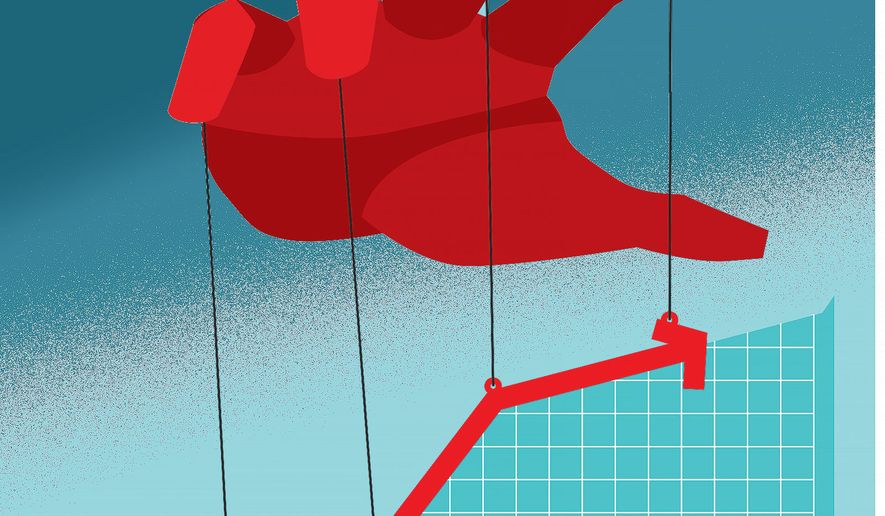OPINION:
The writer P.J. O’Rourke said, “If you think health care is expensive now, wait until you see what it costs when it’s free.”
Politicians claim we have high health care costs and prescription drug prices, then imply that government price controls would lower costs. Some politicians have hopped on the price controls train.
The fact is, that government price controls do far more harm than good. Nor are government price controls conservative ideas.
Price controls conflict with conservative, free-market principles and with property rights. Milton Friedman, Friedrich Hayek, Henry Hazlitt, Adam Smith, Thomas Sowell, Ludwig Von Mises and other free-market economists have advocated for economic freedom for private individuals and businesses, unimpeded by government price controls and other interventions in the private market.
These conservative economic principles aren’t anti-government. Good government provides the rule of law, respect for private property rights, equal justice, impartiality, due process and so forth. These foundational principles enable economic freedom while reining in bad actors.
Let’s be clear about what price controls are: government price-fixing. It’s per se illegal if a private company engages in price-fixing because it’s so anti-competitive.
When government fixes prices, bureaucrats make health care policy through budgetary limitations. Direct government “negotiation,” favored by Sen. Elizabeth Warren, Sen. Bernie Sanders and other lawmakers, amounts to a “take-it-or-leave-it” proposition for private innovator companies. This leads to problems of access and coverage for patients, while innovation drops off.
In some cases, such limits import the fixed prices of foreign government-controlled health systems. Reference pricing pegs U.S. prices to foreign countries’ government-set prices. Reference pricing essentially allows other countries to decide the worth of medical goods and services in our nation.
Price controls yield predictable harms. Economist Thomas Sowell explains: “Whenever and wherever government controls have been put into effect to hold down prices, the most common consequence has been a reduction in the quantity supplied.”
Price controls drive up demand — artificially low prices harm more citizens than they help because their government doesn’t buy enough of a medical good for all the patients needing that product.
Price controls reduce supply — government rations access to what’s available because the artificially below-market prices disincentivize production.
Rationing access to government price-fixed medicines in Canadian, European and other government health systems means budget-driven bureaucrats coldly delay or deny medical care that could cure, treat or protect patients in need. Canadians wait on average 22.6 weeks from seeing a primary care doctor to a specialist visit.
The cruelty that price controls entrench as policy includes basing rationing decisions on “quality-adjusted life years,” or QALYs. In English, that means if you’re too old, too young or too sick, “drop dead,” literally.
Then there’s the fraud of “comparative effectiveness.” This translates into, if there’s a drug available already for a condition or disease, the new one must be comparably priced and deliver clinical results that wow you. Frequently, bureaucrats manipulate the clinical data to get the results they want for budget reasons.
Hazlitt expands on price controls: “Profit margins are reduced or wiped out. The marginal producers are driven out of business. Even the most efficient producers may be called upon to turn out their product at a loss.” Foreign bureaucrats respond to the adverse consequences of their price controls by “adopt[ing] various other devices and controls.”
With medical innovations like medications and medical technology, price controls treat novel innovations as though they were mere commodities.
Such government price-fixing may hold down spending in the short term, but it diminishes innovation that produces new diagnostics, therapies and cures. It drives away innovators and robs them of R&D funding critical to future discoveries and medical breakthroughs.
Whatever the flaws in the U.S. health system, government price controls are a “cure” worse than the disease.
Price control schemes encumber private producers’ property rights. They reduce market-based choice and competition for consumers. They curb innovation, quality and value. This socialism comes at too expensive a price.
• James Edwards, Ph.D., is executive director of Conservatives for Property Rights (@4PropertyRights) and patent policy adviser to Eagle Forum Education and Legal Defense Fund. The views expressed are his own.




Please read our comment policy before commenting.